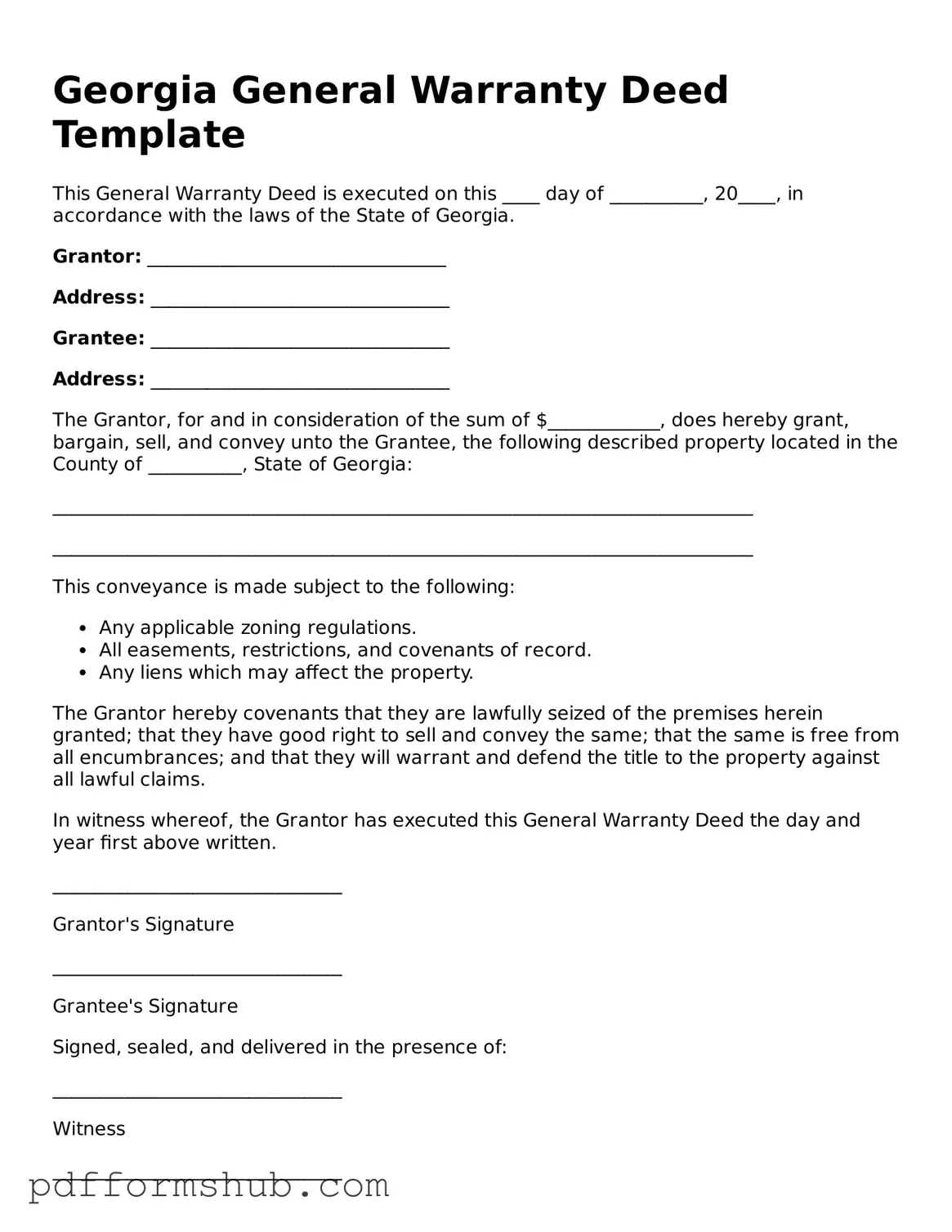Attorney-Verified Deed Form for Georgia State
A Georgia Deed form is a legal document used to transfer ownership of real property from one party to another. This form outlines the details of the transaction, including the parties involved and the property description. To ensure a smooth transfer, it's essential to fill out the form accurately; click the button below to get started.
Customize Form

Attorney-Verified Deed Form for Georgia State
Customize Form

Customize Form
or
Free PDF Form
Short deadline? Complete this form now
Complete Deed online without printing hassles.